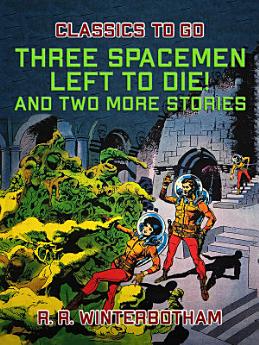Three Spacemen Left to Die! And two more stories
Jan 2022 · Otbebookpublishing
Ebook
45
Pages
family_home
Eligible
info
reportRatings and reviews aren’t verified Learn More
About this ebook
About the author
R. R. Winterbotham, born on August 1, 1904, in Salina, Kansas, was an American writer whose work spanned the realms of science fiction, mystery, and adventure. Winterbotham's early career was marked by his contributions to pulp magazines in the 1930s and 1940s, a golden era for speculative fiction. His stories often explored the fringes of human experience, blending scientific curiosity with imaginative foresight.Winterbotham's influence on contemporary writers is notable; his ability to weave intricate plots with scientific plausibility inspired a generation of science fiction authors. He was a pioneer in integrating real scientific principles into his narratives, a practice that has become a staple in the genre today. His works often featured protagonists who were scientists or engineers, reflecting his belief in human ingenuity and progress.A lesser-known but intriguing aspect of Winterbotham's life was his involvement in the early comic book industry. He wrote scripts for several comic book series, contributing to the burgeoning popularity of the medium. This crossover between pulp fiction and comics showcased his versatility and understanding of popular culture.Controversy touched Winterbotham's career when some critics accused him of being too optimistic about technology's role in society. In an era shadowed by the Cold War and nuclear anxiety, his faith in scientific advancement was both revolutionary and contentious. Yet, this optimism resonated with readers who yearned for a hopeful vision of the future.Winterbotham's legacy endures through his innovative storytelling and his unwavering belief in the potential of science and human creativity. His work continues to inspire and challenge readers, making him a significant figure in the history of American speculative fiction.
Rate this ebook
Tell us what you think.
Reading information
Smartphones and tablets
Install the Google Play Books app for Android and iPad/iPhone. It syncs automatically with your account and allows you to read online or offline wherever you are.
Laptops and computers
You can listen to audiobooks purchased on Google Play using your computer's web browser.
eReaders and other devices
To read on e-ink devices like Kobo eReaders, you'll need to download a file and transfer it to your device. Follow the detailed Help Center instructions to transfer the files to supported eReaders.






